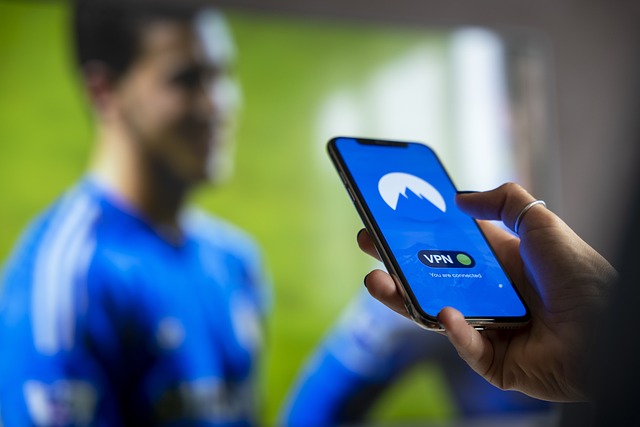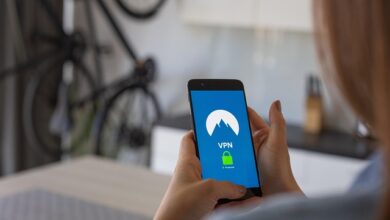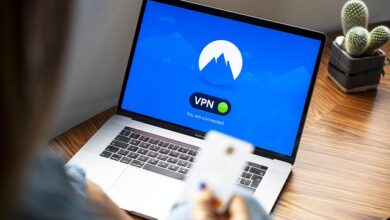Why You Need a VPN & How It Protects Your Data

In today’s digital age, where technology is deeply integrated into our daily lives, online privacy and security have become more important than ever. Whether you’re browsing the internet, shopping online, or accessing sensitive information, your data can be at risk. This is where Virtual Private Networks (VPNs) come in as essential tools to safeguard your digital life. In this article, we will explore why you need a VPN, how it protects your data, and its various benefits.
What is a VPN?
A Virtual Private Network (VPN) is a service that encrypts your internet connection and masks your IP address, allowing you to browse the web privately and securely. Essentially, when you use a VPN, your device connects to a server operated by the VPN provider before accessing the internet. This creates a secure “tunnel” between your device and the internet, ensuring that all your online activities are hidden from prying eyes.
Why Do You Need a VPN?
1. Enhanced Privacy
Without a VPN, your Internet Service Provider (ISP), government agencies, advertisers, and even hackers can track your online activity. They can monitor which websites you visit, what you search for, and even collect personal information like your location and preferences. A VPN shields your identity by masking your IP address and encrypting your data, making it nearly impossible for anyone to spy on your online behavior.
2. Data Encryption
When you connect to public Wi-Fi networks—such as those in coffee shops, airports, or hotels—your data becomes vulnerable to interception by cybercriminals. These unsecured networks can allow hackers to steal sensitive information such as passwords, credit card numbers, and private messages. A VPN encrypts your data, turning it into unreadable code, so even if someone manages to intercept it, they won’t be able to decipher it.
3. Access Restricted Content
Many countries impose strict censorship laws that restrict access to certain websites or services. Additionally, streaming platforms like Netflix, Hulu, and BBC iPlayer often limit content based on geographic locations. With a reliable VPN, you can bypass these restrictions by connecting to servers located in different regions, giving you unrestricted access to global content.
4. Protection Against Cyber Threats
Cyberattacks are becoming increasingly sophisticated, with ransomware, phishing scams, and malware posing significant risks to individuals and businesses alike. Using a reputable VPN adds an extra layer of protection against these threats by securing your connection and preventing unauthorized access to your devices.
5. Anonymity Online
If you value your anonymity while surfing the web, a VPN ensures that no one can trace your online activities back to you. By routing your traffic through remote servers, a VPN hides your true IP address, making it difficult for websites, advertisers, and other entities to identify who you are or where you’re located.
How Does a VPN Protect Your Data?
To understand how a VPN works to protect your data, let’s break down the process step-by-step:
1. Establishing a Secure Connection
When you activate a VPN, your device establishes a secure connection with one of the provider’s servers. This connection is encrypted using advanced protocols, such as AES-256, which is the same encryption standard used by banks and military organizations.
2. Masking Your IP Address
Once connected, your real IP address is replaced with the IP address of the VPN server you’re using. Since IP addresses reveal details about your geographical location, masking yours helps maintain your anonymity online.
3. Encrypting Your Traffic
All data sent and received over the internet is encrypted within the secure tunnel created by the VPN. Even if someone were to intercept your data packets, they would only see scrambled text that cannot be read without the decryption key.
4. Preventing DNS Leaks
DNS (Domain Name System) leaks occur when your device sends queries to resolve domain names directly to your ISP instead of the VPN server. A good-quality VPN prevents DNS leaks by directing all DNS requests through its own secure servers, ensuring none of your activity is exposed.
5. Blocking Malicious Websites
Some premium VPNs offer additional features like ad-blocking and anti-malware protection. These features help prevent malicious scripts and harmful downloads from compromising your system.
Benefits of Using a VPN
For Personal Use:
- Safeguard your personal information when using public Wi-Fi.
- Access blocked websites and streaming services unavailable in your region.
- Maintain privacy while browsing social media or conducting financial transactions.
- Avoid price discrimination based on location when booking flights or hotel rooms.
For Business Use:
- Ensure secure remote work environments by protecting company data transmitted over the internet.
- Allow employees to access corporate networks and resources from anywhere in the world.
- Comply with data protection regulations such as GDPR and HIPAA.
- Monitor employee productivity without violating their privacy rights.
Choosing the Right VPN
With countless VPN providers available, selecting the best one for your needs requires careful consideration. Here are some factors to keep in mind:
1. Security Features
Look for a VPN that offers strong encryption standards, kill switches (to terminate your connection if the VPN drops), and no-logs policies (ensuring your activity isn’t recorded).
2. Server Locations
The more server locations a VPN has, the better chances you have of finding one close to your desired destination. Proximity to servers affects speed and reliability.
3. Speed Performance
While encryption may slightly slow down your connection, a high-quality VPN minimizes latency and maintains fast speeds even under heavy loads.
4. Ease of Use
Choose a user-friendly interface that allows you to set up and manage your connection effortlessly, regardless of your technical expertise.
5. Customer Support
Opt for a provider offering round-the-clock customer support via live chat, email, or phone to assist you with any issues promptly.



